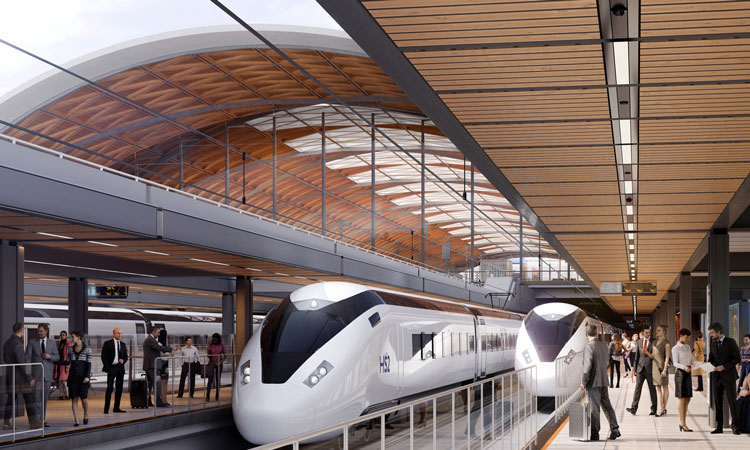UK-based technology firms set to join HS2 Innovation Accelerator initiative announced
Posted: 10 November 2020 | Global Railway Review | No comments yet
The five will receive commercial and technical support as they develop their technology to help deliver Europe’s largest infrastructure project.


The names of the five new cutting-edge technology firms that will join HS2 Ltd’s Innovation Accelerator programme have been announced.
Focussing on HS2’s innovation challenges of driving innovation in construction and enhancing passengers’ station experience, the five – chosen from 118 applicants to the programme – will receive commercial and technical support, plus rent-free working space, as they develop their technology to help deliver Europe’s largest infrastructure project.
All five firms will start their HS2 development work in November 2020, and will continue to work through to March 2021.
After four months of development inside the Accelerator, the firms’ solutions will be showcased and pitched to industry investors and HS2’s supply chain, consisting of the thousands of companies ranging from the largest international engineers to specialist suppliers to the project.
HS2 Ltd’s Innovation Manager, Rob Cairns, said: “We are drawing on the very best of British innovation and skills to ensure the UK’s investment in HS2 not only delivers an outstanding high-speed rail network, but also builds a sound economic legacy that generates prosperity after the railway’s construction is complete. These five firms are at the forefront of the innovative ideas, and we look forward to working with them to realise their ambitions.”
The five companies that were chosen are:
- Digital Rail is developing technology that helps to provide independence to passengers with a mobility impairment arriving at stations. Its RailSightAssist innovation is an app-based computer vision solution that detects wheelchairs, bicycles, pushchairs, heavy luggage, partially sighted or blind passengers when they arrive and alerts station staff to provide assistance
- Hypervine’s app-based technology enables construction contractors to become more agile by quantifying, through a single ‘dashboard’, work across site activities and to compare actual performance against planned work, and identify where efficiencies can be made, generating both cost and carbon savings
- Rail Diary creates digital site diaries and reporting software tailored to the rail construction industry. Site diaries are traditionally a very manually intensive process for those working on construction sites. The Rail Diary platform enables teams to complete daily reports throughout a shift, including photos and videos, then turns those reports into real-time actionable insights and comparative data. By removing the communication lag between site and office, Rail Diary provides front-line staff with the tools they need to deliver projects more effectively
- Grid Smarter Cities’ technology could help HS2, its contractors and site personnel to better manage commercial freight movements and activities, especially in congested urban areas where efficient network and kerb space management is critical
- Open Space’s technology can help better understand potential people flow in and around the world class HS2 stations. The company’s pedestrian simulation and artificial intelligence (AI) decision models visualise pedestrian flows that can help improve customer experience, enhance safety and reduce asset management costs, as well as manage social distancing during the COVID-19 pandemic.
Related topics
Apps, Artificial Intelligence (AI), Big Data, Coronavirus/COVID-19, Digitalisation, High Speed Two (HS2), High-Speed Rail, Operational Performance, Passenger Experience/Satisfaction, Sustainability/Decarbonisation, Technology & Software, The Workforce
Related organisations
Digital Rail, Grid Smarter Cities, HS2 Ltd (High Speed Two), Hypervine, Open Space, Rail Diary







